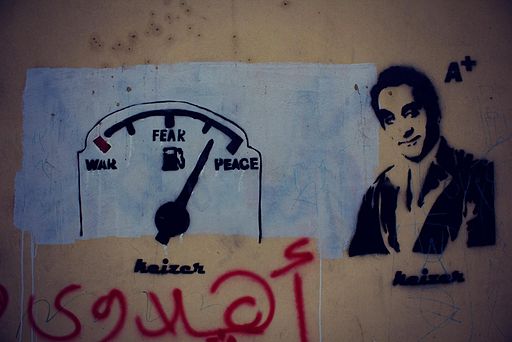The Egyptian Jon Stewart
BY RAZI SAFI
Jon Stewart and Stephen Colbert have been our generation’s major source of intellectual humor and cheap laughs. For many, they have even been an occasional news source. While widely different in style, their satirical comedic method allows their viewers to evaluate the political stories of the day and ridicule ideas that, while politically convenient, make absolutely no sense. Some might regard them solely as two comedians who make their living poking fun at issues in our daily lives. However, the recent events in Egypt show us that comedians are essential to an open national dialog necessary for a free democracy.
In 2011, Bassem Yousef, an Egyptian cardiac surgeon, started a television show called “El Bernameg” (literally: the show) after the Arab Spring in Egypt. The self-proclaimed “Jon Stewart of Egypt,” Yousef’s television program is essentially indistinguishable from The Daily Show. However, unlike Stewart and Colbert, Yousef has faced a lot more criticism from his democratically elected government. In 2013, President Morsi’s regime issued an arrest warrant for Yousef for allegedly insulting Islam, insulting the President, “circulating false news likely to disturb public peace and public security and affect the administration,” and insulting Pakistan.
What Bassem Yousef does in Egypt is no different than what Americans have been doing for centuries. Ridiculing our politicians is as quintessentially American as baseball or apple pie. As Americans, we hardly tend to notice it anymore, but I was first exposed to how strange this concept is in the Middle East after my brother-in-law first moved to the United States. While watching The Colbert Report one night, he seemed puzzled that we were so quick to judge and mock our elected officials, even though we are the ones responsible for their rise to power. The reason we can mock our politicians is because we are the ones who voted them in—we are not dishonoring the title by making jokes, we are simply expressing our opinions on how well they represent our voices.
When I last visited Syria in 2009, I found it to be a (relatively) free society—however, what distinguished it from the United States was the lack of political expression among its population. The government operated under a rule of “we’ll stay out your business if you stay out of ours,” meaning that as long as you didn’t mock or criticize the government, you were assured a relatively happy, painless lifestyle with little interference from the government. As we now see from the 3-year long civil war there, that style of ruling is unsustainable.
The durability of the United States’ democracy has evolved tremendously since our founding. We no longer fear a fall of our government because someone makes fun of our political process. Furthermore, we see such expressions of opinions as strengthening our political system; our system is strong enough to handle the minor inconveniences that snarky comedians throw at it.
Egypt, on the other hand, is still at an unsteady point in its formation of a democratic government which has been further shaken by the recent overthrow of President Morsi. Egyptians view comedians such as Bassem Yousef as threats to a functioning government. This perspective could not be further from the truth. When Jon Stewart visited Egypt in June and appeared as a guest on El Bernameg, he told Yousef and his audience, “If your regime cannot handle a joke, you don’t have a regime.”
Stewart’s point demonstrates the role that Bassem Yousef, Stephen Colbert, and he play in a society. Their ability to expose the weaknesses of their governments only helps strengthen the underlying principles that those governments are built upon. Bassem Yousef doesn’t undermine the efforts of hundreds of thousands of Egyptians who took to the streets in protest of Mubarak’s rule, nor does it undermine the legitimacy of a democratically elected leader. In fact, Bassem Yousef plays the role of a freedom fighter in a far different sense than the protestors. Yousef helped show the Egyptian people that there are ways of speaking out against the government that don’t have to include overthrowing leaders or violence. While the revolution in Egypt is far too complex to discuss here, especially considering the recent removal of President Morsi, it’s fair to note that perhaps Bassem Yousef’s comedic approach to political activism could ultimately play a constructive role amidst the instability and chaos in the region. At this point, all we can do is hope that the Egyptian people and their government can recognize the vital role that comedians such as Yousef play in their political society.
WATCH BASSEM YOUSEF’S FULL INTERVIEW WITH JON STEWART:
